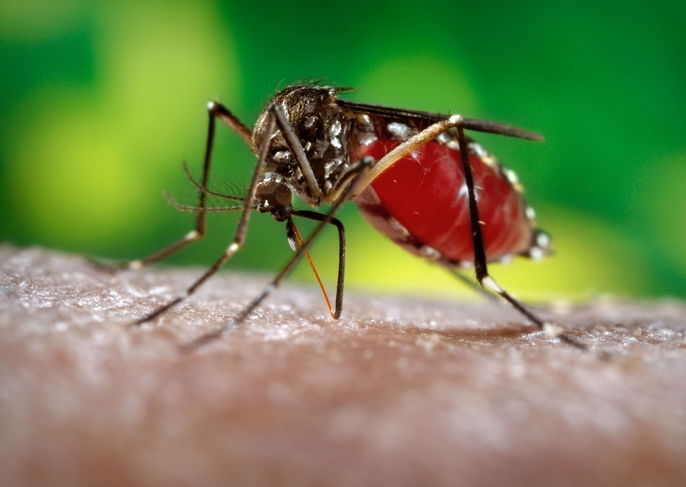Dengue treatment is aimed at relieving symptoms like fever and body aches with medication like acetaminophen. Hydration and rest are also essential for the recovery of this viral infection.
Patients with dengue should avoid using certain anti-inflammatories (particularly those that contain acetylsalicylic acid) as these medications can interfere with clotting and increase the risk for hemorrhage.
The treatment of both classic and hemorrhagic dengue should be guided by a doctor to avoid severe complications, like liver, heart, neurological or respiratory problems..

Classic dengue treatment
The treatment of classic dengue is aimed at relieving the main symptoms, which may include high-grade fever, body aches, headaches and fatigue. The doctor may prescribe analgesics like acetaminophen to manage discomfort.
While undergoing treatment, adequate fluid intake is very important, as well as a healthy diet that is light and easy to digest. You should avoid eating sweets, soda and other isotonic beverages to prevent worsening of symptoms like diarrhea, nausea and vomiting.
Patients should be reassessed by the doctor 72 hours after the initial diagnosis to ensure they remain stable and free from complications like dehydration and internal bleeding.
Patients may be admitted to the hospital if they are unable to maintain hydration on their own (e.g. babies) or if the fever does not improve.
Hemorrhagic dengue treatment
Hemorrhagic dengue is one of the main complications that can emerge from classic dengue. Patients presenting with hemorrhagic dengue should be treated in a hospital environment with IV fluid and medication. The doctor may prescribe medications that ensure that blood continues to clot appropriately so that further hemorrhaging can be prevented.
Patients who lose copious amounts of blood will require a blood transfusion to replenish red blood cell or platelet levels that are low.
Hemorrhages that are not controlled may lead to cardiac failure and shock, and may require admission to the intensive care unit for more rigorous treatment.
In severe cases,, reassessments and periodic blood work is often required to monitor the health status in critical patients.. Blood tests may be ordered every 15 minutes until the patient shows signs of stabilization, and then may progress to every 2 hours. Usually, patients are discharged 48 hours after the fever has broken and once platelet levels have normalized.
Hospital treatment
Dengue treatment should be provided in the hospital for pregnant women, babies, children, and patients with a history of high blood pressure, cardiac failure, renal failure, asthma, or diabetes, even if the patient is not bleeding.
Hospital treatment is also advised for people with chronic blood problems, like anemia falciforme, and autoimmune diseases.
Admission to a hospital ensures a more thorough approach to treatment to prevent possible life-threatening complications.
Natural remedies
Natural remedies may help to complement the medical treatment of dengue. You can drink chamomile tea, St. John’s wart tea, or horseradish tea to help relieve symptoms and strengthen the immune system. Check out what to eat if you have dengue and how to incorporate foods into your diet as you recover.
Natural remedies should not substitute medically prescribed treatment, and any complementary options should first be discussed with your doctor.
Possible complications
The main complication of dengue is the development of hemorrhagic dengue, which should be treated in a hospital setting. Children are prone to have febrile seizures from high fevers and dehydration, which is why they should also be admitted to a hospital for treatment.
Some people with dengue may experience liver damage, which may lead to hepatitis. These conditions require prompt treatment before irreversible damage to the liver occurs.
Signs of improvement
Normal body temperature and decreasing pain and discomfort are usually signs that a dengue infection is improving. Improvement is noted within 8 days of the initial onset of symptoms.
Signs of worsening
Signs that the dengue infection is worsening include vomiting, intense abdominal pain, agitation or lethargy, pallor, low blood pressure, palpitations, cold hands and feet, excessive perspiration, fainting and changes to consciousness. Some people may notice red pinpoint marks on the skin or bleeding from the nose or gums.
If you notice any of these symptoms, you should proceed immediately to the closest hospital for assessment.






























